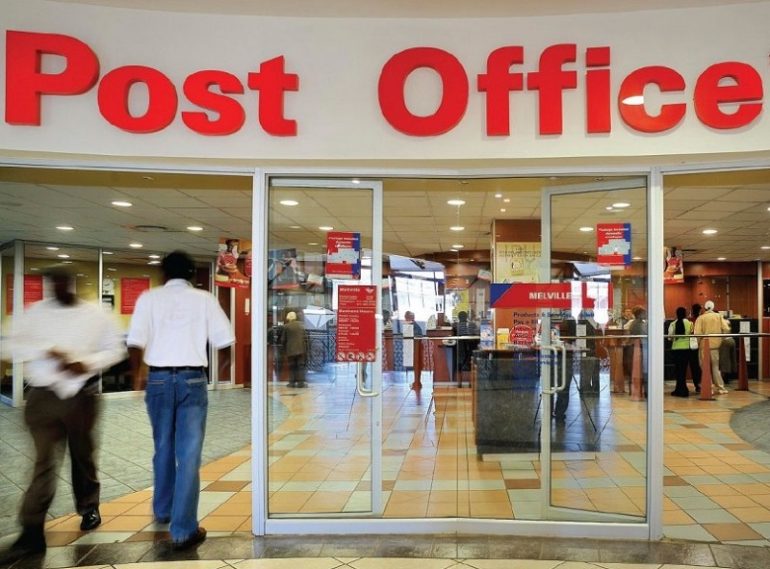MARIKANA AND THE LEGACY OF BLOODY MINERAL EXTRACTIONS
By Tunicia Phillips
When we commemorate the Marikana massacre, we remember more than just the lives that were brutally taken in the fight for a bigger cause. The miners who died between 9 and 16 August 2012 have become historical icons. The miners who were slain in Marikana now represent a turning point in South Africa’s fight against the colonial monopoly that continues to economically oppress millions. They do this while moonwalking away with the minerals from yet another African country’s soil. This commemoration is an annual moment to reflect deeper on the real elephants hanging from the ceiling.
Minerals and rights extraction on the continent
A report on the degree to which European powers still control Africa’s mineral resources ($1 trillion worth listed on the London Stock Exchange), found that 101 Western corporations operate in 37 Sub-Saharan African countries alone. The NGO, War on Want, released the report entitled ‘The New Colonialism’ (2016) which states that, “While the scale and scope of the UK’s involvement in the exploitation of Africa’s mineral resources is staggering, so too is the trail of social, environmental and human rights abuses left in its wake”. The report begins by arguing that Africa is facing a new colonial invasion, which is no less disastrous than the scale and impact of the 19th century’s invasions on its land. It immediately links the success of this continued invasion on the generous assistance of the former colonial power, the UK government.
“It has been secured through a revolving door between Whitehall and British mining companies, with at least five British government officials taking up seats on the boards of mining companies operating in Africa”.
A Human Rights report exposed Anglo Gold Ashanti for entering into talks with rebel group FNI in the Democratic Republic of Congo in the 90’s. The company continues to invest in the DRC’s gold despite its political and policy challenges born from conflict. In 2009 oil conglomerate Shell agreed to pay $55.5 million to settle a case in which it was accused of playing a part in the execution of Ongoni tribe leaders who were notorious environmentalist in the oil extraction sector. Writer Ken Saro – Wiwa was among them. The Guardian claims that the payout was one of the largest human rights violation settlements by a big extraction company, in history. The Ongoni families accused the company of conspiring with the military to have them executed. The rise in conflict – mineral – trades across the continent are often linked underhanded support from Western institutions and companies. The US Export Bank has also been exposed for its generous investments in a company operating in the Sub Sahara while it was being investigated by a Canadian court for slavery. Slavery, in 2017?
Commodities over life in August 2012
The debilitating effects of the platinum strike on the markets on the morning of 15 August 2012 sent a strong message to those with interests in the world’s third largest platinum producer. The reaction began to trickle down to South Africa’s senior gate keepers, who own but a fraction of the profits that will eventually reach London. Mining blue chip, Lonmin, had lost five days of labour and will announce the following day that this translated to an unproduced amount of 15 000 ounces of platinum per day. Union members affiliated to the new kid on the platinum block, Amcu, have downed tools without following procedure to declare their wage dispute ‘protected’. Their strike is declared a crime under the country’s Regulation of Gatherings Act. They are demanding a R12 500 wage across the board and demand that the mining company addresses their demands before they consider dispersing. In the days to follow, the ruling ANC party’s Deputy President, Cyril Ramaphosa will send a directive that will blur the lines between his status as a non-executive director of the company, and his historical identity as a liberation fighter and a forefather of labour organisation in the country.
“The terrible events that have unfolded cannot be described as a labour dispute. They are plainly dastardly criminal and must be characterised as such … there needs to be concomitant action to address this situation”.
Ramaphosa would, four years later, be grilled by the EFF in Parliament about his wording in that communication, and for the first time he will admit that he should and could have expressed his concern differently.
On 16 August 34 of these miners will die at the hands of authorities, bringing the strike’s death toll to 44. For at least two days, media reports will carry a one sided story that the miners were violently charging at police before officials retaliated with lethal force. Only the very next week will the country learn sketchy details of how some miners were hunted down and shot in cold blood while hiding.
The code – switching habits of business leaders turned presidential hopefuls
If all goes his way, Ramaphosa will be elected ANC president when the ruling party convenes at its elective conference in December this year, and if the ANC wins the 2019 general election, he will become South Africa’s next president. It begs the question that if the battle to decolonise South Africa from the monopoly grip of its former oppressors continues, what are the chances that a former business tycoon will armour this unequal nation with the policy and leadership it needs to win? It is beneficial to have the great business acumen to lead a country that needs foreign investment, but U.S President Donald Trump and Deputy President Ramaphosa have shown the world that this quality is rarely paired with an affinity for upholding human rights.
On 16 August, South Africans must never forget that miners in Marikana are yet to earn the R12 500 so many died for; that on 16 August many residents of mining communities will continue to live in squalor. Beyond 16 August, the world must be reminded that the fight against colonialism is far from over.
Written by: Smart
Similar posts
MORE ARTICLES

Charge more and have fewer clients or charge less and have more?

Unpacking a case of an employee who falsely accused a colleague of being the father of her child

PICS: Guess the Kaya 959 presenter

Powerball Results: Draw Friday, 18 April 2025

‘My wife chose her sister’s party over my family’s tombstone unveiling’ – The Blind Spot
QUICK LINKS
UpComing Shows

Tune and Chill
with Tyroline Franks
Tune and Chill with Tyroline Franks on Kaya 959. Weekends, Saturday and Sunday, 15pm-18pm.
close
On the Beat
On the Beat with George Manyosi on Kaya 959. Saturday's, 18pm-21pm.
close
Touch of Soul
With T Bose
Kaya 959 takes back Sundays with A Touch of Soul, the only show bringing you soul and RnB music that touches your mind, body and spirit. The Best T in the City, T-bose takes you back to a time when music was made to last. A Touch of Soul is the perfect wind-down to your weekend. Sundays 14h00 to 18h00.
close
The Jazz Standard
with Brenda Sisane
The Jazz Standard with Brenda Sisane. Sunday's 12:00-15:00.
close
Spade of Hearts
With Xola Dlwati
WITH XOLA DLWATI: SATURDAYS 12:00 -15:00 Spade of Hearts is a fuse of love and soulful sounds, pulling at your heartstrings. Tune in for songs that will take you down memory lane. It is the sound that once dominated your playlist. It airs Sundays 12:00 – 15:00.
close
The World Show
With Nicky B
The World Show is informative, expansive, and largely pan-African. This is a musical journey that bridges generations and genres, travelling across continents and timelines, with in-depth interviews and features. ‘The World Show’ is a four-hour global journey through sound – featuring the freshest tracks from home and afar.
close
959 Music Weekdays
Kaya 959 Hits
Real. Familiar. Memorable. Kaya 959 brings you the music you know and love from our playlist. Uninterrupted. Thursdays 20h00 to 21h00
closeConnect with Kaya 959
DownLoad Our Mobile App
© 2024 Kaya 959 | On The Street On The Air







